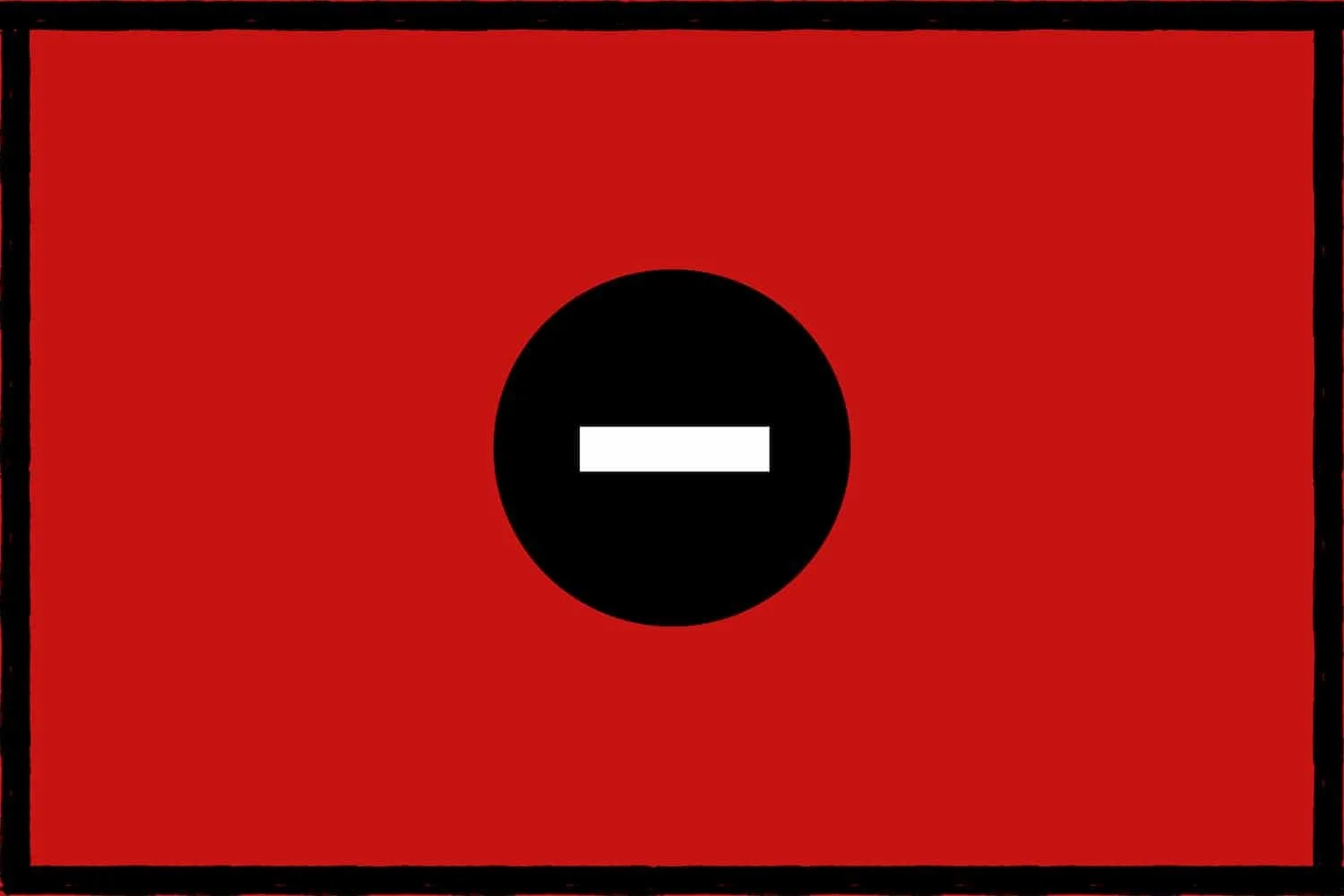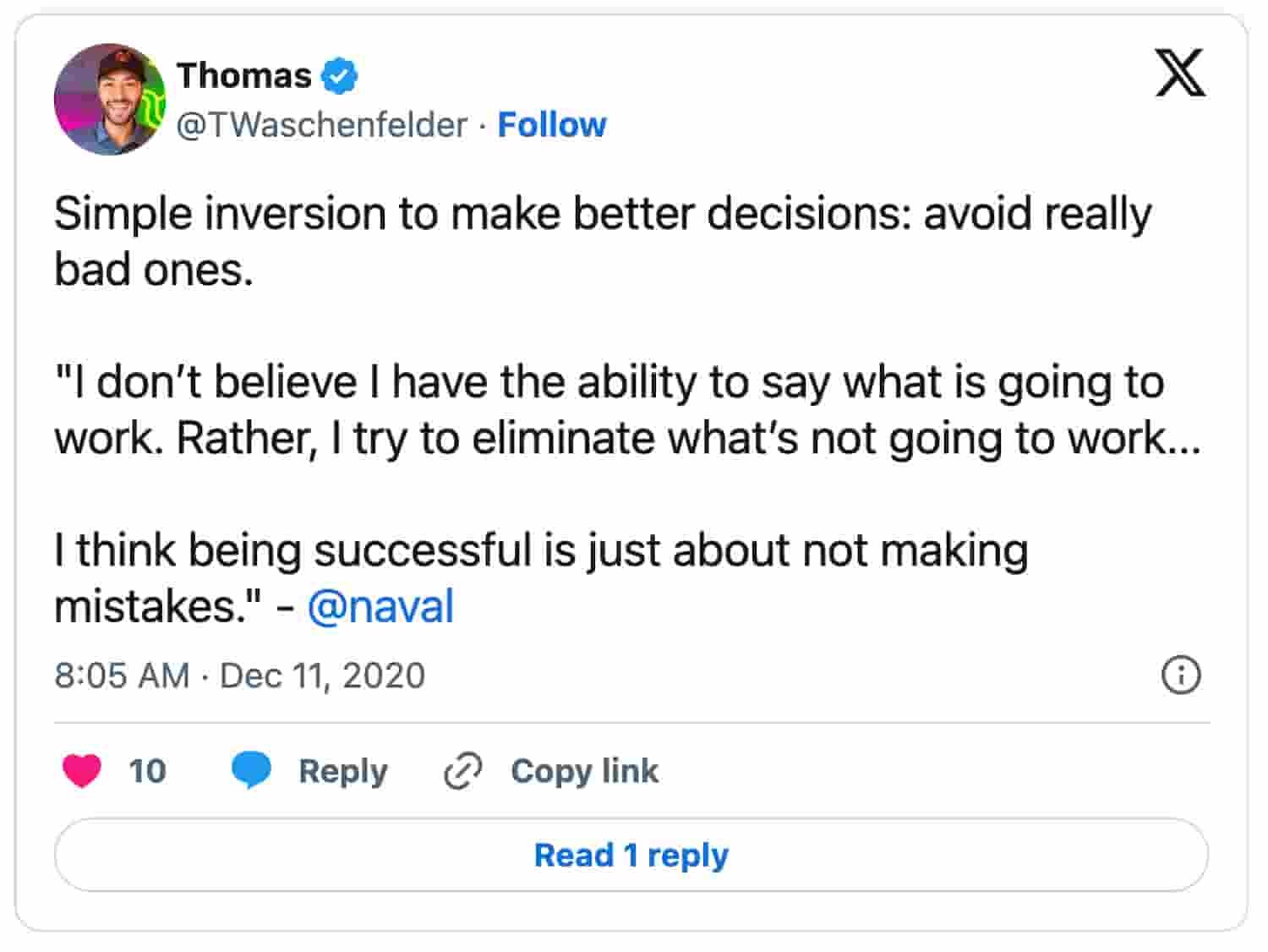Via Negativa: Improvement By Subtraction
Most people immediately look at what they can create or add to something to make it better. Very few people consider what they could remove.
Yet, there is immense power in improvement by subtraction - an idea called via negativa.
Consider that a clear mind is one without distraction.
Clear writing is that which removes redundancies and clutter to make room only for the essential.
And a good diet removes processed foods, sugar, and other additives in exchange for real food.
You can improve your life substantially by merely knowing what to avoid.
What is Via Negativa?
Via negativa is essentially the study of what not to do.
The idea comes from a Latin phrase used initially in Christian Theology to explain what God is by focusing on what he isn’t.
If God transcends all things, humans cannot apply qualities and attributes to him in the affirmative (God is light, God is love, etc.). Instead, via negativa presents God as a mystery that humans cannot describe in words.
Nassim Nicholas Taleb gives us a more general definition in his book, Antifragile: Things That Gain From Disorder:
Via negativa: In theology and philosophy, the focus on what something is not, an indirect definition. In action, it is a recipe for what to avoid, what not to do—subtraction, not addition, say, in medicine.
I like Taleb’s definition because it takes via negativa out of strict theology. He extends it to actions that we can use to make better decisions.
Examples of Via Negativa
Most people have trouble imagining their perfect day. It’s hard to come up with all the things you want to do and experience throughout your life.
Via negativa lets us take the opposite approach. Try listing out all the stuff you don’t want to do. Think about all the things that would make your life terrible and then avoid those at all costs.
Then, list out the stuff you are already doing that you dread. Pick the worse offender and find a way to eliminate it from your life. You will be astounded at the positive impact this has on your well-being.
Here are a few other examples of studying what not to do as a tactic to navigate the world.
Naval Ravikant: To Make Good Decisions, Avoid Bad Ones.
Naval Ravikant uses via negativa to help him make decisions.
In The Almanack of Naval Ravikant, he says:
I don’t believe I have the ability to say what is going to work. Rather, I try to eliminate what’s not going to work. I think being successful is just about not making mistakes. It’s not about having correct judgment. It’s about avoiding incorrect judgments.
To eventually enjoy the upside of your decisions, you need to avoid the downside. You need to survive your worst day so you can keep playing the game. To make good decisions, avoid bad ones.
Inversion: Problem Solving In Reverse
This is one of my favorite quotes from Charlie Munger: “All I want to know is where I’m going to die, so I’ll never go there.”
What’s one way to get more of the thing you want? Avoid the thing that will destroy the thing you want. To get more life, avoid death. Charlie is practicing inversion - he’s inverting the problem.
Inversion is the practice of thinking through problems in reverse. Instead of asking how an endeavor can succeed, you identify how it could fail and carefully avoid those pitfalls.
Warren Buffett: Don’t Lose Money.
Warren Buffett’s #1 rule is don’t lose money. Alice Schroeder, Buffett’s biographer and author of The Snowball, provides insight into Buffett’s obsession with NOT losing money in a Reddit AMA. Here’s a screenshot of her note:
Buffett doesn’t obsess over the potential upside of a deal. He obsesses over the downside and makes sure there are multiple layers of protection against losing money. That’s via negativa - the recipe for what to avoid.
Why Via Negativa is So Powerful
Here are a few reasons why via negativa (studying what not to do) is an effective technique.
Positive Knowledge Often Turns Out To Be Wrong.
Generally, you know what hurts you better than you know what helps.
Taleb has a phrase for this he calls “subtractive knowledge: You know what is wrong with more certainty than you know anything else.”
Taleb writes that this “negative knowledge” is more useful to us than the positive kind because the positive knowledge can eventually turn out to be wrong, hurting you in the process. Here’s what he writes in Antifragile:
We know a lot more what is wrong than what is right, or, phrased according to the fragile/robust classification, negative knowledge (what is wrong, what does not work) is more robust to error than positive knowledge (what is right, what works). So knowledge grows by subtraction much more than by addition—given that what we know today might turn out to be wrong but what we know to be wrong cannot turn out to be right, at least not easily.
For example, we know that losing money in a poker game is definitively “bad.” But we can’t be sure that winning the lottery will be good for us in the long run. We know what hurts us better than we know what helps.
Loss Aversion Makes Losses Hurt More.
You suffer more from a loss than you enjoy from a proportionate gain. Or more concretely, as Charlie Munger explains:
A man with $10 million in his brokerage account will often be extremely irritated by the accidental loss of $100 out of the $300 in his wallet.
This idea is called loss aversion, or as Munger calls it: deprival-superreaction tendency. You do not react symmetrically to a gain and a loss - the loss hurts far more.
Via negativa is powerful because it focuses intently on avoiding the stuff that will cause you trouble, saving you pain and suffering.
Via Negativa Avoids Second & Third Order Consequences.
Second-order consequences are those consequences that come after your actions’ immediate results (the first-order consequences). And if you don’t watch the ripple effect of your actions closely, they can devastate your intended goal.
Here’s Shane Parrish writing about second-order thinking in his book, The Great Mental Models Volume 1:
Second-order thinking is thinking farther ahead and thinking holistically. It requires us to not only consider our actions and their immediate consequences, but the subsequent effects of those actions as well. Failing to consider the second- and third-order effects can unleash disaster.
By using via negativa as a road map for what to avoid or what to remove, you eliminate possible second and third-order consequences that come with positive action.
This is the same reason why I suggest that negative advice (telling someone what not to do) is better than positive advice (telling them what to do). If you want further reading on that, you can read my article here.
Special thanks to Emma Cranston for her help in creating this article.
If You Want More Content Like This, Follow Me On Twitter And Subscribe To My Newsletter:
ARTICLE SOURCES
Jorgenson, Eric. The Almanack of Naval Ravikant: A Guide to Wealth and Happiness. Magrathea Publishing. Kindle Edition.
Parrish, Shane; Beaubien, Rhiannon. The Great Mental Models Volume 1: General Thinking Concepts. Latticework Publishing Inc.. Kindle Edition.
Taleb, Nassim Nicholas. Antifragile: Things That Gain From Disorder (Incerto). Random House Publishing Group. Kindle Edition.





